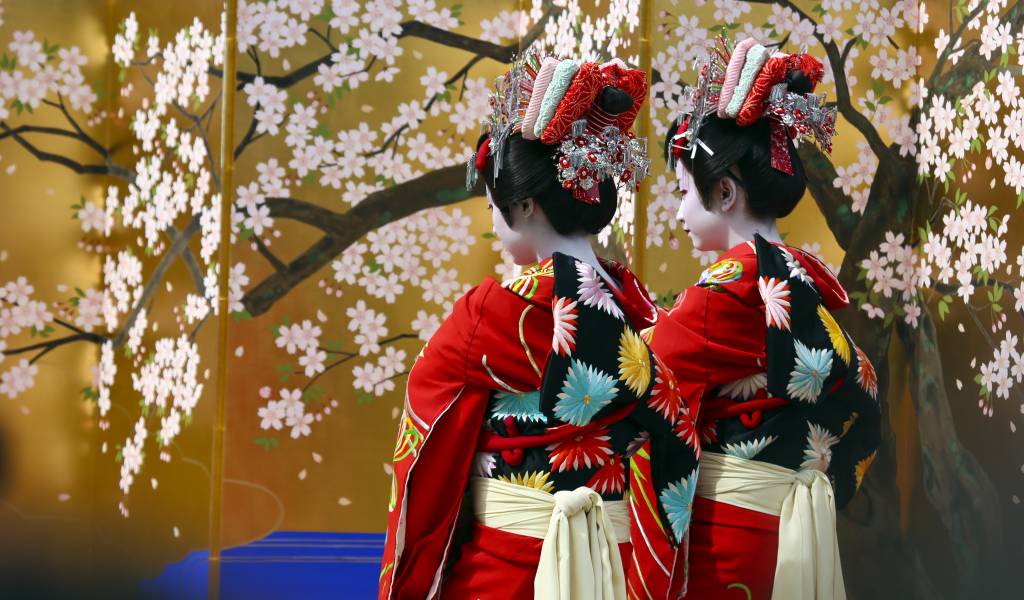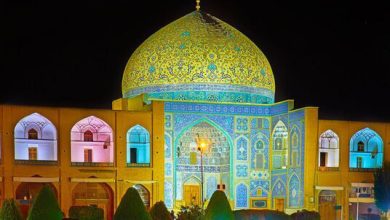CULTURE OF JAPAN
Culture of Japan with General Information
Total Size:
377,835 square km
Capital:
Tokyo
Region:
Asia
Low Point:
Hachiro-gata -4 m
High Point:
Mount Fuji 3,776 m
Climate:
cool temperate in north, Varies from tropical in south
Major Cities:
Tokyo, Nagoya, Fukuoka-Kitakyushu, Sapporo, Osaka-Kobe
Famous Places:
Imperial Palace, Tokyo Tower, Monkey Park, Kiyomizu-dera Buddhist temple, Himeji Castle, Todaiji Temple, Tokyo Skytree, Golden Pavilion, Mount Fuji, Great Buddha of Kamakura.
Currency:
Yen (JPY)
Type of Government:
Constitutional monarchy with a parliamentary government
Independence:
660 B.C. traditional founding by Emperor Jimmu
Divisions:
47 prefectures
General Overview Japan

Japanese culture is one of the oldest and most vibrant cultures in the world. It has been shaped by centuries of history, religion, and art, and has had a profound impact on global society. From its values, artistic traditions, and religious influences to its use of technology, the influence of western culture, and its impact on the environment, the culture of Japan is diverse and fascinating. In this blog, we will explore the history and core elements of Japanese culture, from its sophisticated philosophical foundations to its popular aspects, traditional customs, and role in international relations. We will also discuss the influence of Japanese pop culture on global society and how it has impacted Japanese society.
Overview of Japanese Culture
Japan, a country with a rich culture and history, is home to a variety of traditions and customs. From the traditional tea ceremonies, to the unique fashion and cuisine, the culture of Japan has something to offer for everyone. With a deep reverence for nature and spirituality, Japanese culture is strongly influenced by Buddhist and Shinto beliefs. Japanese art is known for its distinctive and intricate designs, while traditional music and dance are often accompanied by the sounds of the shamisen and the taiko drums. The language of Japan, with its complex writing system, has been studied and admired for centuries. Through its deep traditions, Japan has managed to maintain a strong sense of cultural identity and pride.
History of Japanese Culture
The history of Japanese culture is one that has been deeply intertwined with the country’s society and religion for centuries. From the foundation of the Shinto religion to the influence of Buddhism and Confucianism, to the rise of the samurai, Japan’s culture has been shaped and molded by the country’s religious and social beliefs. Japanese culture is known for its traditional arts, such as kabuki and sumo wrestling, along with its distinct cuisine. It is also known for its unique architecture, literature, and philosophy, as well as its martial arts such as judo and karate. The unique and diverse culture of Japan has helped shape the country’s identity, making it a strong and influential nation.
Japanese Cultural Values
Japan is known for its strong cultural values, which have been passed down through generations. These values are based on a foundation of respect, honor, and humility. Through these values, the Japanese have developed a strong sense of community, family, and tradition. These values are reflected in their everyday life, from the way they interact with one another to their approach to education and business. Japanese culture is focused on harmony, respect for all living things, and appreciation for the natural environment. These values have been integral to the formation of Japanese society, and continue to shape the country’s distinctive culture.
Impact of Japanese Culture on Global Society
Over the centuries, Japan has developed a distinct and iconic culture that has had a profound impact on the world. From its distinctive cuisine to its elegant fashion, the influence of Japanese culture can be seen not only in Asia, but also in Europe and North America. From the traditional tea ceremony to modern anime and manga, the impact of Japanese culture is undeniable. Not only has it inspired many popular trends in the West, but it has also had a lasting effect on the way people think and behave. For example, the concept of honor and respect is deeply ingrained in Japanese society, and this attitude has spread to other parts of the world. Furthermore, the Japanese have made significant contributions to the global economy. Japanese technology, such as the Hitachi train and Sony electronics, have become standard components of modern life. Ultimately, the impact of Japanese culture on global society is hard to deny, as it has shaped and continues to shape our world in many important ways.
Popular Aspects of Japanese Culture
Japan is a country renowned for its unique culture and rich traditions. Popular aspects of Japanese culture include traditional art forms such as calligraphy and origami, martial arts like karate and judo, and the traditional gardens and shrines found throughout the country. Japan is also known for its ancient cuisine, which incorporates ingredients like fish, rice and seaweed into flavorful dishes. The country is also renowned for its fashionable clothing, with kimonos and yukatas being some of the most iconic garments. Japanese culture is also heavily influenced by its religion, Shintoism, which has many festivals and rituals that are still celebrated today. No matter what you’re looking for, Japan is sure to offer something to captivate everyone.
Significant Artistic Traditions of Japanese Culture
Japanese culture is full of unique and significant artistic traditions. From the ancient art of calligraphy to the intricate designs of the kimono, Japanese art has been influencing the world for centuries. The traditional patterns and motifs of the country’s art are often said to reflect its culture, philosophy, and values. From the Ukiyo-e woodblock prints of the Edo period to contemporary anime and manga, Japanese art has been inspiring people around the globe. Art forms such as origami, ikebana, ceramics, and woodworking are all part of the rich cultural heritage that continues to shape the world today. The country has produced many famous artists, including Katsushika Hokusai, who is best known for his iconic woodblock print The Great Wave off Kanagawa. Japan is home to a plethora of art museums, galleries, and festivals that showcase the nation’s vibrant artistic culture.
The Influence of Religion on Japanese Culture
Religion has played an important role in the formation and development of Japanese culture. Since its introduction to Japan in the 6th century, Buddhism has had a major impact on the country’s culture, particularly the arts. Aspects of Buddhism such as traditional rituals, iconography, and mythology have been incorporated into Japanese culture and can be seen in many aspects of life. Additionally, the Shinto religion, which was already present in Japan before Buddhism, has also had a strong influence on Japanese culture. From the elaborate Shinto ceremonies that take place at shrines to the reverence for nature and ancestor worship, Shinto has shaped many aspects of Japanese culture. Together, these two religions have had a profound impact on the development of Japanese culture and continue to be an integral part of the country’s culture today.
Role of Technology in Japanese Culture
Technology plays an important role in Japanese culture, particularly in the modern era. Technology has become an integral part of everyday life, from the way people communicate to the way people shop and consume products. It has also had an impact on the traditional aspects of Japanese culture, such as the way ceremonies are conducted, the way people interact with each other, and the way people express themselves. Technology has allowed the people of Japan to modernize many of their cultural practices and traditions, while still staying true to their roots. For example, advances in technology have led to the development of new forms of art, music, and literature. Additionally, the use of technology has allowed for Japan to become more connected to the rest of the world, as well as to share its culture with the rest of the world. As a result, Japanese culture has become more accessible and dynamic. Ultimately, technology has played a vital role in the evolution of Japanese culture, and its impact on the country’s culture will no doubt continue to be felt in the future.
The Impact of Western Culture on Japanese Culture
Western culture has had a significant impact on Japanese culture throughout history. Since the Meiji Restoration in 1868, Japan has adopted many aspects of western culture, such as democracy, capitalism, education, technological advances, and even fashion. Western culture has had a great influence on Japanese culture, from the introduction of Christianity to the increasing presence of American pop culture. The impact of western culture on Japan can be seen in almost every aspect of its culture, from language and literature to fashion and entertainment. For example, the English language has been widely adopted in Japan, and western music, films, and television programs are widely popular. Western fashion has also become increasingly popular among Japanese youth, who are often seen wearing western-style clothing. Furthermore, Japanese cuisine has borrowed some dishes from the west, such as spaghetti, curry, and hamburgers. All in all, western culture has had a profound effect on Japanese culture, and it continues to be a major influence in modern Japan.
Future of the Japanese Culture
The future of the Japanese culture is one that is steeped in tradition and rooted in the values of the past. With changes in technology and the rise of globalization, it is important for Japan to embrace the newness of the modern world while still preserving the customs and values that have been passed down for generations. This means that providing education on the rich history and cultural traditions of Japan is essential for the future of the nation. Additionally, it is important to maintain positive relationships with other nations in order to foster a sense of global understanding. With these two goals in mind, the future of the Japanese culture is one that is unique and ever-evolving.
Influence of Nature on Japanese Culture
The impact of nature on Japanese culture is evident in many aspects of the traditional lifestyle. From the way of life of the Ainu people to Buddhism, many aspects of Japanese culture have been shaped by the surrounding environment. Nature has been a source of inspiration for art and music as well as a source of spiritual comfort. Nature is also deeply embedded in the way of life in Japan, with the four seasons being celebrated with special holidays, festivals, and rituals. Natural elements such as mountains, rivers, and forests are often seen in the artwork and architecture of Japanese culture. Nature has also been essential to the agricultural practices of the Japanese people, with rice paddies, tea gardens, and orchards being some of the most important crops. Nature has long been a part of the Japanese way of life, and it continues to play an important role in the culture.
Impact of Japanese Culture on the Environment
The impact of Japanese culture on the environment is undeniable. Japan is a country with a long and rich history of ancient traditions and customs that have been passed down through generations. These traditional values have greatly influenced the way in which Japan approaches environmental issues. For example, the country has adopted a holistic approach to environmental management, emphasizing the interconnectedness of all aspects of the environment. This has led to a focus on preserving natural resources, such as forests and water, and a strong commitment to recycling and waste reduction. In addition, the Japanese government has enacted laws and regulations to protect the environment and promote sustainable development. All of these efforts have resulted in a significant reduction in the nation’s carbon emissions, as well as other forms of pollution. In conclusion, Japanese culture has a significant and positive influence on the environment.
The Role of Gender in Japanese Culture
The role of gender in Japanese culture is an intricate and multifaceted one. Gender roles in Japan are heavily influenced by traditional social structure and values, which have been in place for centuries. In Japan, traditionally, men held the authority in the family and workplace, while women were responsible for managing the household. This has resulted in a certain level of gender inequality, with women facing more restrictions and limitations than their male counterparts. However, with the advent of modernity, gender roles have become increasingly flexible. While certain traditional values remain, the introduction of technology and globalisation has allowed for a more equal and respectful environment for both genders. Furthermore, the importance of female education has also risen in recent years, with Japanese women pursuing higher education and taking on leadership roles in a variety of fields. Ultimately, the role of gender in Japanese culture is a complex one, and it has been shaped by a number of factors, both historical and contemporary.
The Influence of Shintoism on Japanese Culture
Shintoism is a prominent religion in Japan that has had a profound influence on the culture of the country. Historically, Shintoism was the main religion in Japan and it has helped to shape the culture of the country. Shintoism has a strong focus on nature and emphasizes the importance of ancestor worship. This has led to the traditional practice of honoring family ancestors, venerating the spirits of nature, and respecting the sanctity of the natural environment. Additionally, Shintoism has also had an influence on the Japanese language, with many of its words and concepts being used to express concepts related to the religion. Finally, the religion has also impacted the way that Japanese people view death and funerals, with traditional rituals and ceremonies being a part of the funerary process. In conclusion, Shintoism has had a significant influence on Japanese culture and continues to shape the way that the Japanese people interact with their environment and each other.
The Role of Language in Japanese Culture
Japanese culture has been heavily influenced by language from the ancient times. Language has been used to convey and shape the values, beliefs, and customs of the Japanese people. It is a powerful tool for communication and expression, and its role in Japanese culture is highly significant. For example, honorifics, which are a system of polite forms of speech, are very important in Japanese culture. These forms of speech are used to express respect for others, and are a fundamental part of communication. Additionally, the language has been used to construct the identity of the Japanese people, and to create a sense of community and shared history. It is also used to express emotions and convey feelings, which is an important part of Japanese culture. Thus, language plays a key role in Japanese culture, as it is used to express and convey the values, beliefs, and customs of the Japanese people.
The Role of Education in Japanese Culture
Education has long been deeply embedded in Japanese culture, with a strong emphasis on the importance of providing a quality education for all. For centuries, the Japanese have valued academic excellence and have placed a strong emphasis on developing a well-rounded education that provides students with both theoretical and practical knowledge. This has helped shape the culture’s focus on lifelong learning, as well as a strong commitment to developing a culture of respect for elders and teachers. Education has also been viewed as a means to gain social status and to achieve economic success. In recent years, education reform has become increasingly important in Japan, with a focus on improving the quality of education and preparing students for a global economy. By emphasizing the importance of education, the Japanese have developed a culture that values hard work and perseverance as a path to success.
Philosophical Foundations of Japanese Culture
Japan has a unique and fascinating culture with its own set of philosophical foundations that have been developed over centuries. These foundations are deeply rooted in both Shinto and Buddhist beliefs, as well as Confucianism and other indigenous religions. These philosophies have shaped the values, customs, and traditions of the Japanese people. Respect for authority, a strong sense of community, and a deep appreciation for nature are some of the core values that are heavily embedded into Japanese culture. Furthermore, the concepts of honour and loyalty are deeply entrenched in the Japanese way of life. All of these philosophical beliefs are essential to understanding Japanese culture and its development over time.
Role of Social Media in Japanese Culture
The role of social media in Japanese culture has been significant in recent years. As the technology has become more widespread, it has become an integral part of everyday life in Japan. Social media sites such as Twitter, Instagram, and Line have become popular ways for individuals to connect with each other and share information. This has enabled individuals to stay in touch with friends and family, share news and events, and even find new opportunities for employment. Additionally, social media has been instrumental in promoting international understanding and cross-cultural exchange. By providing platforms for dialogue and conversation, social media has become a bridge between cultures, enabling Japanese citizens to learn more about other cultures and gain an appreciation for diversity. By providing a platform for discussion, social media has also helped foster discussion of important issues such as politics and social justice. Finally, social media has been used by the Japanese government to promote awareness of issues such as disaster relief, environmental issues, and other social causes. It is clear that social media has played an important role in the development of Japanese culture.
Effects of Japanese Culture on International Relations
Japan has a unique culture that has had a significant impact on international relations. Japan’s cultural values, including respect for authority, obedience, and hard work, have been adopted by many countries worldwide. Japan’s emphasis on teamwork and consensus-building have also been embraced by many other societies. Japan is also known for its strong focus on learning and education, and many countries have looked to Japan’s education system as a model to emulate. Additionally, Japan’s emphasis on politeness has shaped the way many nations interact in international affairs. Japan’s culture has played a significant role in shaping the global economy, as Japanese businesses are renowned for their reliability and efficiency. Japan’s culture has also had a lasting impact on international trade and diplomacy, as countries often look to Japan for leadership and advice. Ultimately, Japan’s culture has had a profound effect on international relations over the years.
Environmental Sustainability in Japanese Culture
Japanese culture has a long history of embracing environmental sustainability. This is because of the deep respect for nature that has been a part of the Japanese lifestyle for centuries. Japanese people have a long-held belief that nature should be respected and preserved, and that using natural resources responsibly is a moral obligation. This is reflected in various aspects of Japanese culture, such as in traditional homebuilding techniques that make use of natural resources such as bamboo and paper, or in the reverence of the environment in religious and spiritual traditions. As the world faces increasingly urgent environmental challenges, it is important to remember that there are cultures which have long embraced sustainability and continue to do so today. The Japanese culture is one of those cultures, and its commitment to preserving the environment is something to be admired.
The Role of Family in Japanese Culture
Japanese culture places a high value on the family unit. Family is the most important social structure and is seen as the foundation of a successful life. Families are expected to support, nurture, and care for each other. This includes providing emotional, financial, and physical support. Family members are expected to communicate openly and honestly with each other. Respect for elders and hierarchy within the family is also important. Family members are expected to put aside their own personal needs in order to help the family succeed. This strong sense of family values and traditions often results in strong and lasting relationships.
The Role of Food in Japanese Culture
Japanese culture has a long and complex history of culinary arts and customs. Food plays an integral role in Japanese life, from everyday meals to religious ceremonies, and the country’s unique cuisine is respected and appreciated worldwide. Traditional Japanese cuisine is characterized by its fresh, light flavors and delicate presentation, with an emphasis on seasonal ingredients. Japanese cuisine also includes a wide variety of seafood, rice, noodles, and pickled vegetables. Japanese culture also has a deep-rooted appreciation for tea, which is often enjoyed ceremoniously. For centuries, food has been a part of Japanese social, religious, and cultural life, with special attention paid to how meals are presented and enjoyed. From the intricate dishes of Kaiseki-ryori to the homey dishes of Washoku, food plays an important role in Japan’s rich culture.
Traditional Customs and Etiquette in Japanese Culture
Japanese culture is steeped in a long history of traditional customs and etiquette. Respect, politeness, and good manners are all highly valued within the culture and are essential for interpersonal relationships. For example, bowing upon greeting someone is a sign of respect and humility. Additionally, when speaking to someone, it is important to use respectful language and deferential phrases. Furthermore, Japanese culture emphasizes humility and self-deprecation. For example, one should not make direct claims of their own intelligence or abilities. This is often seen in Japanese greetings, which are often phrased as questions in order to be more humble and deferential. Moreover, Japanese culture is also famous for its emphasis on cleanliness and order. Public behavior is expected to be respectful and polite, and personal hygiene and appearance are taken seriously. Finally, gift-giving is also an important part of Japanese culture, and it is expected that one should reciprocate a gift with one of equal or greater value.
Role of Sports in Japanese Culture
Sports play an integral role in Japanese culture and have been an important part of the country’s social fabric for centuries. Traditional sports such as sumo wrestling, kendo, and judo are seen as national treasures and are practiced widely throughout the nation. Other modern sports, such as baseball, basketball, soccer, and golf, have also become popular in recent years.
Sports have been used not only as a way to stay fit and healthy, but also as a form of entertainment and a way to build relationships. In Japan, it is common to enjoy sports with friends and family, creating a sense of community and shared passion. Sports also provide an opportunity to display physical and mental prowess and to gain admiration from others.
Sports are also seen as a way to cultivate personal growth and development. For example, martial arts such as judo and kendo emphasize the importance of discipline and respect. Other sports such as baseball and soccer are seen as a way to foster teamwork and collaboration.
In conclusion, sports are an important part of Japanese culture, and have had a longstanding impact on the nation’s social and economic development. The role of sports in Japan is one that continues to evolve, but remains an integral part of the country’s identity.
The Role of Traditional Media in Japanese Culture
Japan is a culture that has been influenced by both modern and traditional media. Traditional media, such as television, radio, and print media, have long been an integral part of the Japanese culture. These forms of media have been used to provide information, entertainment, and to help shape the values and beliefs of the Japanese people. Traditional media, such as television, newspapers, magazines, radio, and books, have been used to communicate news, provide entertainment and education, and to shape the opinions of the people. Traditional media also plays an important role in helping to preserve the culture and traditions of Japan. For example, NHK, one of the major broadcasters in Japan, has been broadcasting traditional Japanese culture and arts for over 80 years. Traditional media also helps to create a sense of community, by providing a platform for people to interact and share their experiences. Traditional media is also a valuable tool for businesses, as it allows them to reach a large audience with their messages and products. In conclusion, traditional media is an essential part of Japanese culture, as it helps to preserve the culture, provides entertainment and education, and allows businesses to reach a large audience.
Role of Business in Japanese Culture
Business plays an important role in Japanese culture. It is an integral part of their culture and has become a major part of their identity. The business environment in Japan is highly respected and is based on the principles of organization and order, which has made it possible for businesses to remain competitive in the global market. Business in Japan is also considered to be a form of art, and it is believed the business culture can help preserve cultural and traditional values. The concept of “business harmony” is also important in the Japanese business culture, and it involves mutual respect and understanding between employers and employees. Businesses in Japan also focus on quality, efficiency, and innovation as they strive to be the best in their industry. These values are also reflected in their society, where hard work and dedication to one’s job are highly respected. Business in Japan has been a driving force behind the country’s economic success, and it continues to shape the culture and identity of the nation.
Intergenerational Transfer of Japanese Culture
Japanese culture has been passed down through generations for centuries, enabling it to remain an integral part of the country’s identity. This intergenerational transfer of cultural practices and values is a fundamental part of Japanese society, and is evident in everyday life. From the sharing of recipes to the art of flower arrangement, traditional skills and customs are taught to younger generations in order to ensure their continuation. Additionally, many cultural celebrations such as Oshogatsu (New Year’s) are still widely celebrated in Japan today. This process of intergenerational transfer has enabled Japanese culture to remain vibrant and relevant, and is a key factor in its continued preservation.
Role of Social Norms in Japanese Culture
Social norms play an integral role in Japanese culture, as they have been developed over centuries to create a sense of community and belonging for the Japanese people. These norms range from respect for elders, to the importance of hard work, to the concept of “wa” (harmony). Social norms are also a reflection of society’s values, providing guidelines for how people should behave in public and private settings. For example, the concept of “omotenashi” (hospitality) is a cornerstone of Japanese culture, where people go above and beyond to make sure their guests feel welcome. Additionally, the concept of “giri” (duty) is a key driver of behavior, where people are expected to fulfill their obligations and commitments to others. In short, social norms are deeply intertwined with Japanese culture, providing a framework for how people should interact with others and behave in public settings.
Role of Fashion in Japanese Culture
The role of fashion in Japanese culture is a highly influential one, impacting the way the people dress, their ideas about beauty and their daily lives. Fashion in Japan has been influenced by both traditional and modern trends, creating an interesting mix of styles. Traditional Japanese clothing includes the kimono and other ceremonial garments, while modern fashion has been heavily influenced by Western trends. Japanese fashion has become increasingly popular in recent years, with both traditional and modern styles being embraced by the fashion-conscious. Not only do Japanese people dress fashionably, but they also have a great respect for the clothing they wear and the importance of dressing appropriately for different occasions. Japanese fashion is also influenced by the availability of materials and the seasons, with some garments being made from traditional fabrics like silk and cotton, while others are made from more modern materials such as polyester. Fashion in Japan is not just about looking good; it is also a way of expressing one’s identity and personal style.
The Role of Music in Japanese Culture
Music plays a major role in Japanese culture. It is used for a variety of purposes, from celebrating holidays and special occasions to entertaining people in a variety of settings. Music is also used as a way to express emotions, to inspire, and to bring people together. Music has been an integral part of the Japanese culture for centuries, and continues to be a major part of the Japanese culture today.
Japanese music includes traditional forms such as gagaku and shakuhachi, as well as popular music such as J-pop. The traditional forms are based on influences from China and Korea, originating in the 6th century. Gagaku is a form of instrumental music used for court ceremonies and procession. Shakuhachi is a type of Japanese flute made of bamboo.
J-pop, or Japanese pop music, originated during the 1970s and is a genre of popular music. It has become increasingly popular in recent years, and is often influenced by Western culture. J-pop artists often incorporate elements of traditional Japanese music into their songs.
Music is used for a variety of purposes in Japan, from celebrating life events to bringing people together. Music is an integral part of Japanese culture and has been for centuries. It is used to express emotions, to inspire, and to bring people together. Music has the power to unite, and it can be used to create a sense of unity and belonging.
The Influence of Japanese Pop Culture on Global Society
In recent years, Japanese pop culture has been making a global impact, from the music and fashion of the Harajuku subculture to the popularization of anime and manga. This global influence is largely due to the development of digital technologies, which have allowed for the rapid spread of Japanese culture all over the world. As a result, there has been an increased presence of Japanese pop culture in global society, with an emphasis on individual expression and creativity. This shift has had a major impact on the way people dress, communicate, and interact with one another. Furthermore, the influence of Japanese pop culture has even extended to the marketing strategies of large corporations. As a result, Japanese pop culture is now seen as a powerful force in global society, and it will continue to shape the way people engage with each other in the years to come.
The Impact of Japanese Pop Culture on Japanese Society
Japanese pop culture, or J-pop, has had a significant impact on Japanese society. From the kawaii character-based merchandise to the idol groups and anime, J-pop has become a major part of Japan’s culture. J-pop has helped to create a more connected and unified culture, as fans of all ages can share a common interest. It has also provided an accessible way for people to communicate and express themselves, as well as to understand different aspects of Japanese culture. Additionally, J-pop has created numerous economic opportunities for Japan and has become a major industry. In addition, J-pop has had a positive influence on the nation’s education system, due to the popularity of the subject matter amongst students. Finally, J-pop has been a powerful tool of international diplomacy, allowing Japan to reach out to other countries and cultures, and to spread its culture across the globe. J-pop has been a powerful cultural force in Japan and its impact will continue to be felt in the years to come.
Conclusion
In conclusion, Japanese culture is an incredibly deep and complex topic that cannot be fully covered in one blog post. It has a long history, with a range of traditional and modern values, and has had a profound impact on global society. From traditional customs and etiquette, to popular aspects of Japanese culture, such as its art and music, to the influence of Shintoism, language, and technology, the culture of Japan plays an important role in international relations and sustainability. Moreover, it is continually evolving, with a new generation of Japanese people bringing their own values and cultural norms to the table. As the world continues to become more connected, it is vital to understand and appreciate the culture of Japan and its implications for the global society.





